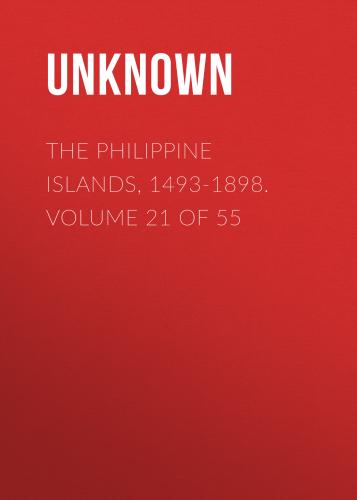“Certain religious of the above-mentioned orders having come from those provinces and from others of the Yndias, and having related the many annoyances that have followed and that might follow from the observance and fulfilment of the said decree, I ordered some of the members of my council and other persons of great learning, prudence, and intelligence to assemble. They having examined the indults, briefs, and concessions of the supreme pontiffs, and the other papers that are filed in the secretary’s office of my Council of the Indias, in regard to this matter of the missions—as well as the informations, letters, relations, and opinions that have been given, sent, and brought from all parts but lately, and upon the occasion of this decree, both by the religious and by the prelates and clergy—have given me their opinion. Considering that it was proper, in order to come to a resolution and decision in a matter of so great moment and importance, and commencing with what is of greatest importance—namely, to commend it to God our Lord, whom you all, as is done here, are to entreat very urgently to guide and direct it as may be most to His service, the proper spiritual government of those kingdoms, the welfare of the souls of the inhabitants and natives therein, and the propagation of the holy gospel: I have determined to await a more detailed relation of what may appear from these new documents, and the general consensus of opinion in all classes, so that after examining them all (since we all must aid for one and the same purpose, and the result must be for the welfare of all, and particularly for mine, for the fulfilment of the great obligation under which our Lord, besides the many benefits which I continually receive from His blessed hand, has placed me by adding thereto so great kingdoms and seigniories, where so great a multitude of souls have come to His true knowledge, and where they will continue to come daily, by the help of His grace which illumines them, so that they may leave their blindness) the best conclusion may be reached. Accordingly, I request and charge you that, having assembled and congregated in that holy council, you discuss and confer over what pertains to this matter. You shall send me a very minute relation of the measures that you shall deem it advisable to take in each province and bishopric by itself, and for all in general, in regard to the execution of the said decree. You shall say what missions are in possession of the religious and those in charge of the seculars, and in what villages and vicinity these are, and all the other things concerning it that you think to be necessary for the sake of greater clearness; so that, having examined the said relations and the others that are awaited, and the papers that are here, and holding consultation with my Council of the Indias, as well as with the other persons whom I shall appoint for this purpose, I may take the most advisable measures. While that is being done and determined, you shall suspend (as I now for the time being do suspend), and I shall consider as suspended, the execution of the decree herein inserted.
“All, and each one by himself, if they are in your dioceses, shall leave the said missions freely and quietly to the said orders and religious, so that those who have held, hold, and shall hold them, may hold them as hitherto, without making any innovation, or changing the manner of filling those missions or appointing the religious to them.
“Each of you personally, in his own district, without entrusting it to any other person, shall visit the churches of the missions where the said religious shall be established, and inspect the most holy sacraments and the baptismal fonts in them, the buildings of the said churches, the alms given for them, and all the other things pertaining to such churches and the services of divine worship. You shall also visit and fraternally correct the religious established in the said missions, in regard to curacies, and shall take special care to consider the honor and good fame of such religious in irregular acts that may be hidden; and when more than this should be necessary or advisable you shall inform their prelates, so that these may punish them. If the latter do not inflict punishment, you shall do so, each one of you, in accordance with the ordinance of the holy council of Trent, after the period of time mentioned in it is passed. And inasmuch as it is not advisable that a matter that is so important as is the care of souls—and, further, those souls that are so new in the faith—be at the will of the religious who shall be established in the said missions, curacies, and benefices, they must understand, both superiors and members [of the orders] that they are to hold the office of cura
7
Referring to his
8
Gregory XIV, in his brief
“And lest the rules and resolutions made for the said bishop [
“Moreover, whenever that bishop, at the advice of the said congregation, shall have reserved any case for himself, according to what shall have appeared expedient for the nature of the times, persons, and affairs, no secular priest nor a member of any religious order or congregation shall, under pretext of any privilege or indult (even though apostolic), excepting the bishop himself, or by his express license and command, be authorized, or dare or presume
